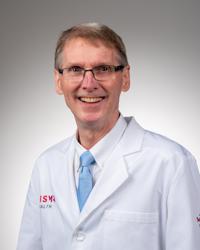About
I am a Board-Certified Diagnostic Radiologist with Prisma in Greenville, SC. Following medical school, I completed a diagnostic radiology residency at Wake Forest Medical University. For over twenty years, I have served as Program Director of medical student education at the USC School of Medicine-Greenville. In this role, I have developed curricula, composed rotation schedules, taught hundreds of medical students, and served as a mentor to dozens more. Regarding scholarship, I have enjoyed collaborating with faculty in the Clemson University Department of Industrial Engineering. Additionally, I will establish additional research collaborations with the Department of Bioengineering which would benefit from my expertise in imaging. I will strive to develop these relationships with the goal of contributing further to the research enterprise at the University.
How their research is transforming health care
Gastroesophageal reflux disease (GERD) affects a significant percentage of the US population. The patients with GERD who respond unsuccessfully to medical therapy are candidates for anti-reflux surgery. Current management for screening of these patients involves using high-resolution manometry (HRM). However, this procedure is uncomfortable and somewhat invasive. Therefore, new screening methods need to be considered and evaluated. The Marshmallow Swallow (MSS) may be a suitable replacement for HRM. The focus of my research was to evaluate the MSS as an effective screening tool for patient selection for anti-reflux surgery. Our findings, published in American Journal of Surgery: ‘Can the marshmallow esophagram replace high-resolution manometry...’, suggest that MSS is a potentially effective screening exam in these patients. Our results could alter patient management in the future. However, further study with a larger cohort is required. Furthermore, in conjunction with the USC School of Medicine in Greenville, the Department of Radiology actively participated as one of the eight original Beta sites to implement the American College of Radiology (ACR) Rad-TEACHES program; an educational resource based on the ACR Appropriateness Criteria to help educate physicians and medical students on the proper ordering of imaging exams based on indication and patient’s presentation. This work resulted in a publication in the American College of Radiology: ‘Multisite Implementation of Radiology-TEACHES.....’. This article and the program will alter student and future physician behavior and will ultimately reduce health care costs and radiation exposure. I look forward to future research collaboration with Clemson Faculty. There are several areas of opportunity throughout the College of Engineering, Computing and Applied Sciences (CECAS). More immediately, I will work with faculty in the Department of Bioengineering to evaluate an in vivo sheep model of intervertebral disc degeneration via magnetic resonance imaging (MRI) in a low-field magnet.
Health research keywords
GERD, marshmallow swallow, high-resolution manometry, ACR, Rad TEACHES, appropriateness criteria, Intervertebral disc degeneration, sheep, grading, low-field magnet.

